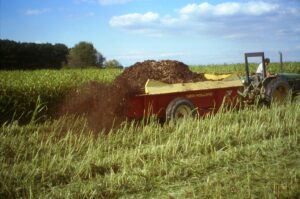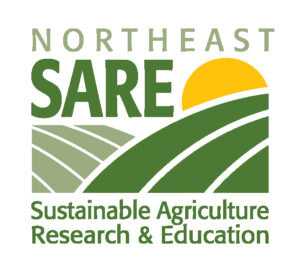On December 8th there will be two webinars related to on-farm food safety. The first is part of our Lunchtime On-the-Go On-Farm Food Safety Webinar Series.
Using Sanitizers in a Postharvest Setting: Selecting a Sanitizer and Understanding its Label
Presented by: Donna Clements, Produce Safety Alliance Coordinator and NE Regional Extension Associate, Food Science Cornell AgriTech from 12:00-1:00. This series is Free! Connect with computer, the mobile app, or by calling in! You will get the link to sign on or call in a few days before the event.
Growers are taught “the label is the law” but finding the right information and understanding what the language means can be difficult. This webinar will make understanding and following the label instructions more manageable in the postharvest setting and discuss the FSMA Postharvest water compliance requirements and timeframes.
At the end of the webinar participants will understand:
-
- EPA labeling, what to look for and what it means
- Ideal chemistries for use in surface sanitation and postharvest water
- Best practices for sanitizing surfaces and postharvest water
- Management of postharvest sanitation systems
- FSMA Postharvest water compliance dates
To sign up or for more information go to: Rutgers On-Farm Food Safety Programs Deadline to register is December 5, 2022
Agricultural Water “Risky to You?”
The second webinar scheduled from 3:00-5:30 is a continuation of the prior webinar on agricultural water and will feature Dr. Don Schaffner from Rutgers University. He will explain what attributes of a water testing program need to be included if it is to be risk based. The webinar will consist of a one-hour presentation followed by 30 min of interactive Q&A.
Registration link 👉 https://virginiatech.zoom.us/webinar/register/WN_GKkO7INqSUGnhPVCdAZX_Q
 Multiple Northeast SARE (Sustainable Agriculture Research and Education) grant recipient Tommye Lou Rafes, of T.L. Fruits and Vegetables in West Virginia, is sharing her experiences to help other farmers experiment with new ideas through the Farmer Grant program.
Multiple Northeast SARE (Sustainable Agriculture Research and Education) grant recipient Tommye Lou Rafes, of T.L. Fruits and Vegetables in West Virginia, is sharing her experiences to help other farmers experiment with new ideas through the Farmer Grant program.
